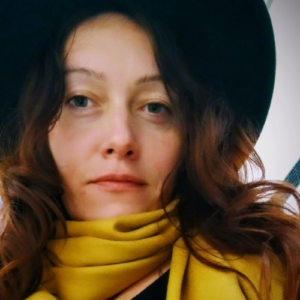Abstract for jubilee congress with international participation XX “Davidenkov readings” dedicated to the 125th anniversary of the foundation of the first Russian chair for advanced training of neurologists
MUSIC THERAPY FOR REHABILITATION IN MULTIDISCIPLINARY CARE OF PEOPLE WITH AMYOTROPHIC LATERAL SCLEROSIS
Apreleva A.
Anglia Ruskin University, Cambridge, UK
“Downloadable text of the abstract”
Aim. In the absence of a curative treatment, more rehabilitation options have to be considered for people with ALS (PALS) (Paganoni et al, 2015). Specialist ALS, multidisciplinary team (MDT) approach to ALS care is recommended by American Academy of Neurology (USA) and National Institute for Health and Care Excellence (UK). We make an argument for inclusion of music therapy into MDT care at early stages of the disease as a supportive modality for rehabilitative treatment of PALS.
Materials and methods. Music therapy (MT) is the clinical use of music and its elements to accomplish individualized health goals within a therapeutic relationship. Music therapist is an allied health professional who is qualified to provide individualized, evidence-based, problem- oriented treatment for a variety of clinical situations. MT techniques to treat cognitive, sensory, and motor dysfunctions that come from human neurologic diseases have been developed, allowing for successful application of MT principles in neurorehabilitation (Thaut, Hömberg, 2016). An overview of international literature on music therapy services for PALS has been conducted. Clinical evidence on MT applications at ALS Moscow Centre (Russia) has been analyzed.
Results and discussion. Research on clinical MT applications for ALS is insufficient (Horne-Thompson & Grocke, 2010). (Petering & McLean, 2001) suggest that MT could contribute to interdisciplinary ALS care. There is anecdotal evidence that MT increases mind- body connection (Lings, 2014), reduces distressing physical symptoms such as dyspnoea and pain, and associated feelings of loneliness, anxiety and sadness for patients with advanced ALS (Forrest, 2002), is “pleasant and restorative” for PALS with tracheostomy and their families (Kondo, 2017), and provides families affected by ALS with opportunities for shared meaningful activities (Schmid, 2016). (Raglio et al, 2016) found that active MT increased communication, improved QoL and decreased the physical symptoms of the disease for PALS during hospital stay. (Davies et al, 2016) report that music-assisted relaxation may be a useful strategy to optimize NIV experience for PALS. We may conclude that, firstly, in most cases, MT is solely available for PALS at the end of life, when natural communication and motor functions are lost or limited. Secondly, there is no evidence for MT being systematically used for rehabilitative support of physical functions, such as gait, limb and core strength, speech, swallow and respiration, even though MT has been shown effective addressing neurorehabilitation goals with various clinical populations (Kim, 2010), (Tamplin. 2008), (Bukowska et al, 2016), whilst research from other disciplines supports our tenet that muscle relaxation and moderate exercise improve physical functioning of PALS (Pinto, Swash and de Carvalho, 2012), (Plowman et al., 2016), (Tabor et al., 2016).
ALS Centre Moscow is a collaboration between three Moscow hospitals providing home- based multidisciplinary ALS care. Two music therapists employed at the Centre are regularly referred by the medical team to patients at all stages of the disease progression and work with a wide spectrum of non-physical and physical needs. Patients of the Centre with early and mid-stage ALS reported that their speech and swallowing improved following MT treatment consisting of structured, individualized breathing and vocal exercises, that MT was motivating and increased their relaxation and improved mood.
Professional music therapists are well qualified to provide symptomatic care for people with neurodegenerative diseases (Magee, 1999). In case of ALS, it appears essential that MT is introduced as a supportive modality early in the disease and is implemented by a music therapist who works closely with MDT, is experienced with ALS population and has sufficient training to address complex, changing needs of PALS, including those of physical rehabilitation. Continued research and higher levels of evidence for MT applications in ALS care are necessitated.

